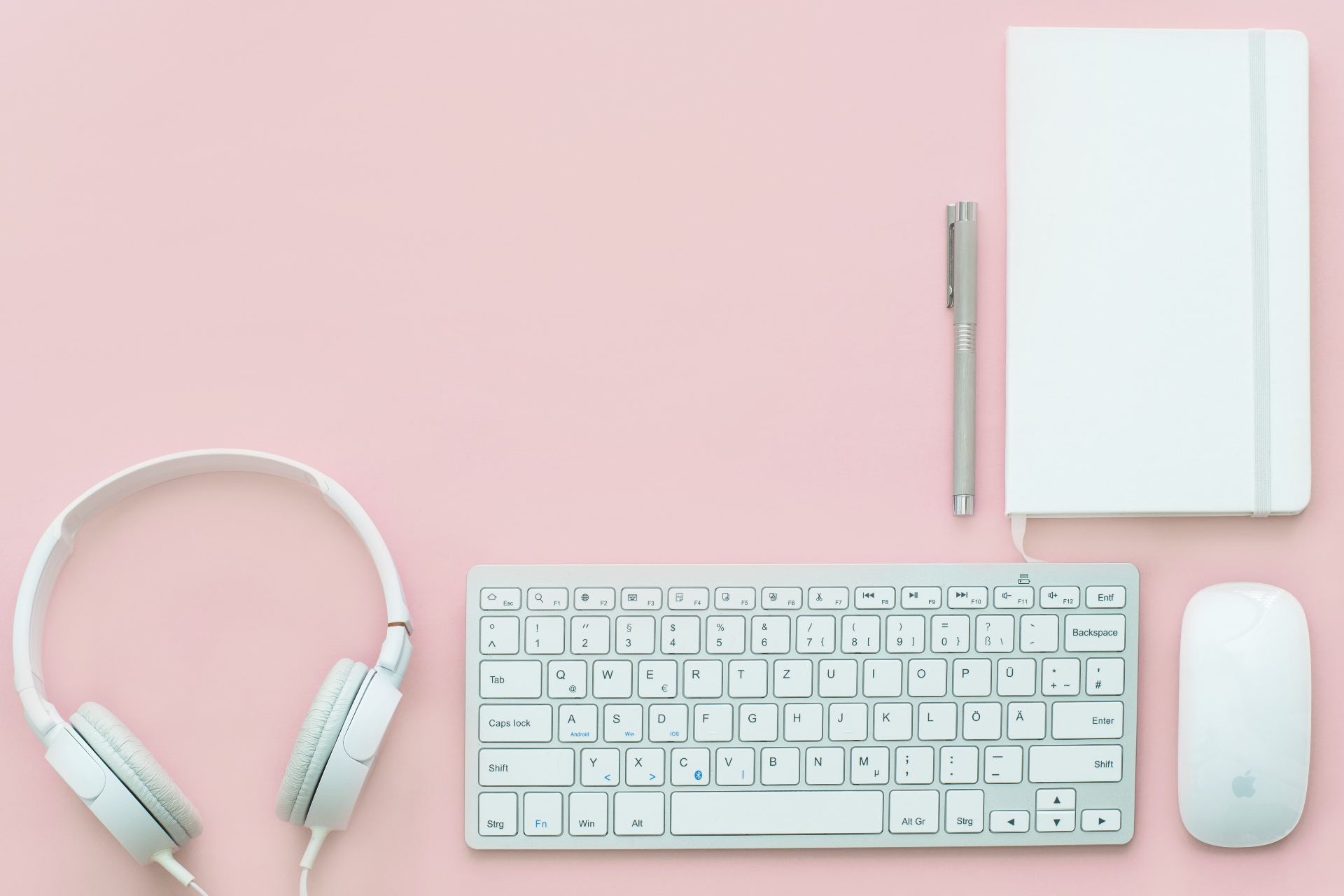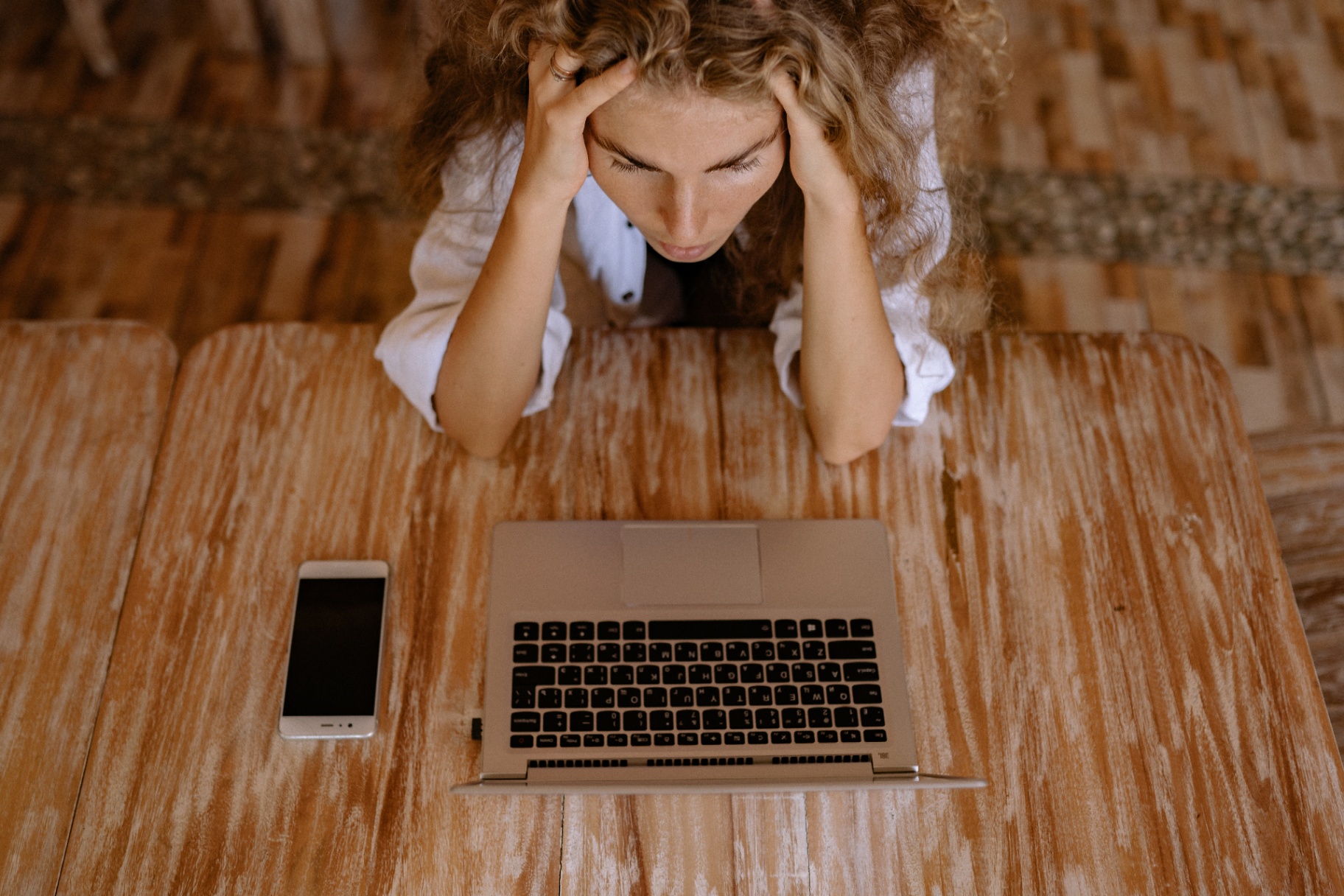Digital Anxiety and Our Lives Now

I’ve been rebuilding my website lately, to create an accessible and reassuring site for clients and potential clients who might use it. This has got me thinking about we often experience the opposite from web content and social media—how they foster digital anxiety.

Digital anxiety is a relatively new term, but it refers to a reality with which many of us are very familiar. Anxiety is a widespread experience in our society, and anxiety associated with technology that changes more quickly than we can adapt to it has also been with us for a long time. Many of us realize that web technology and social media have intensified our anxiety.
Rooted in Our Use of Technology and Social Media
We now know that excessive use of social media, and particularly of the wrong kind of social media can have all kinds of negative effects on us. These can include:
- higher amounts of ruminating about negative things;
- negative social comparisons;
- FOMO – “fear of missing out”;
- insomnia; and,
- increased anxiety or depression.
Technology has the potential to connect us as human beings, and to help us feel seen and validated by others. Yet, so often in our current environment, it becomes the opposite, in that it heightens our fears and plays on our insecurities and areas where we may have a sense of weakness.
Our Technology Reflects Our Culture
Much of our technology reflects our culture, and our culture is strongly driven by anxiety. In fact media in general in our society often push the anxiety or fear button as a way of drawing us into their news items. Similarly, advertisers often use anxiety around our sense of who we are, and our fears that we don’t measure up, as a means of inducing us to buy their products. These tendencies are often only intensified in the “echo chamber” of social media.
Of course, many of us go onto to social media as part of a search for social connection, and to feel better. Yet, it may be important for us to ask ourselves whether our engagement with social media is really giving us what we want and need, or whether, at the end of the day, it’s actually making us feel better or worse, to the extent that it heightens our anxiety or even creates depression.
Self Care in the Age of Digital Anxiety
There is something very important that we can do to care and look after ourselves in this milieu of technology and social media in which we are currently immersed. This is to look in a kind and self-compassionate way at the effect that our use of web technology and social media is having on us. Is it helping us to feel more socially connected and better about who we are? Or is it actually contributing to heightened levels of anxiety, lower quality sleep or a tendency to ruminate and to make unfavourable comparisons of ourselves with others?
Let’s say we find that our web and social media use is affecting us negatively. We might respond to that on one or both of two different levels.
The first is to be very concrete about adjusting our use of web and social media. Perhaps we need to reduce our consumption of certain types of social media. Or, we may need to change the time of day we’re engaging in this activity, for example, by looking at it earlier in the day, rather than, say, just before bedtime. These concrete changes may do quite a bit to help us feel better and to feel good about ourselves.
The second thing we might be led to, is to take a broader look at our own personal journey. Perhaps we need to look at our lives, and who we fundamentally are, in a different light. Perhaps we need to affirm the uniqueness of our own journey, and to discover in more depth the unique value of who we are, and of the values and meaning waiting to emerge in our own unique life.
As C.G. Jung puts it so well,
Do not compare, do not measure. No other way is like yours. All other ways deceive and tempt you. You must fulfill the way that is in you. [italics mine]
Wishing you every good thing or your personal journey,
Brian Collinson, Registered Psychotherapist and
Jungian Analyst
Certified Clinical Anxiety Treatment Professional
© Brian Collinson, 2238 Constance Drive Oakville, Ontario
